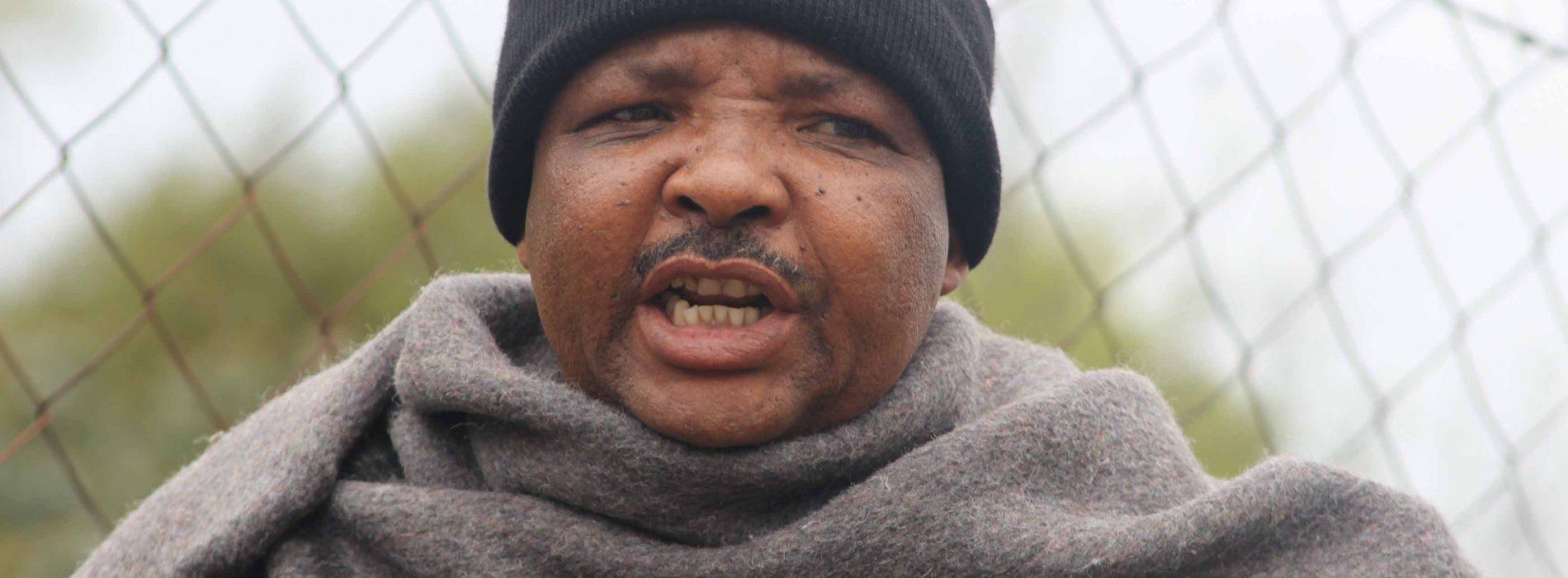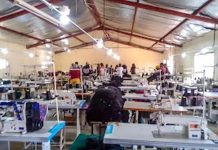Africa-Press – Lesotho. STONE Shi’s Wool Centre is selling Lesotho’s mohair to a South African company at ridiculously low prices in a secret deal that has the government’s blessings.
Documents seen by thepost reveal that Stucken and Company (Pty) Ltd, South Africa’s biggest mohair mill, has been buying Lesotho’s mohair for “dirty cheap” prices of between M60 and M118 per kilogram.
Figures indicate that Stucken and Company is paying between M280 and M500 for a kilogram of mohair at auction floors in South Africa. It appears this was a deal between Shi and the Stucken and Company’s managing director, Anthony Kirsten.
Other prominent mohair buyers and mills in South Africa did not have an opportunity to bid for the mohair because there was no auction. And even after Stucken and Company had agreed to the price Shi did not consult the farmers, the owners of the product, if they accept the offer price.
In a real auction the broker does not accept a buyer’s offer price without consulting the farmers. The obvious losers in this transaction are the thousands of Basotho farmers that the government has blocked from selling their wool and mohair on South Africa’s auctions.
There is a strong possibility that the farmers could have been paid better prices for their mohair had it been sold on an open auction. The low price significantly undermines the government’s claims that Shi would get better deals for the poor farmers.
The government has been insisting that South Africa’s brokers like BKB have been underpaying farmers. This week Kirsten refused to confirm or deny that his company had bought mohair from Shi.
“Our policy is that we don’t discuss our dealings with newspapers,” Kirsten said.
thepost has seen documents showing that on April 5 Stucken and Company imported 113 bales weighing 16 696 kgs from the Wool Centre. It paid the Centre M1 971 240, which translates to about M118 per kilogram.
Value Added Tax was M295 686. However, farmers will not receive M118 because Shi will subtract four percent in broking fees and M1 on every kilogram as Dipping Levy.
Several sources told thepost that the deal between Stucken and Company and Shi was concluded sometime in January, at a time when mohair prices were as high as M500 per kg.
There also seems to be an element of betrayal in the way the deal was reached. This paper has details of a January 5 meeting between Kirsten and the chairman of the Lesotho Wool and Mohair Growers Association (LMWGA), Mokoenehi Thinyane.
Also present at the meeting was Dr Moteane who represented local wool and mohair traders. Tjonane Matla, a wool farmer and a LMWGA member, was also present.
Kirsten is alleged to have told the meeting that he was speaking as the boss of Stucken and Company and the chairman of the South African Wool and Mohair Buyers Association (Sawamba).
Sources said Kirsten told the meeting that buyers might be forced to get mohair from South America if the association does not allow Shi to sell their mohair.
“He warned us that if we don’t sell our mohair within four weeks Lesotho risked losing the market because buyers would have found an alternative,” said one of the people who attended the meeting.
Kirsten asked the LMWG to allow Shi to sell their mohair because the South Africa companies were desperate for the product. Thinyane is said to have told Kirsten that the association does now have the mandate to make such a deal with Shi but he was willing to consult them.
He is alleged to have also told Kirsten that he could not buy the mohair from the Centre because “Shi doesn’t own a single thread of it”. “Thinyane said Kirsten should know that the wool doesn’t belong to Shi. He told him that the association considered any wool or mohair being sold from the centre to be stolen goods,” a source said.
After being told to come up with a proposal on how South African companies could buy the mohair, Kirsten is alleged to have told the meeting that he would rather get the product from Shi because he didn’t have time to waste.
It seems that by that time Kirsten had already started negotiating with Shi. He had also met Small Business Minister Chalane Phori, the man leading the government’s battle against the farmers.
It later became apparent that Kirsten was not working for the interests of Sawamba but his company. This is because a few weeks later Stucken and Company got the necessary documents to import 150 000kgs of mohair from Lesotho, according to his import and export permits seen by thepost.
Other members of Sawamba got to know of the deal through the grapevine. Phori said when the centre announced that they would not sell wool or mohair to South Africa “they merely meant they would not sell to South African brokers who have been cheating farmers for years”.
“China is the biggest consumer of wool but South Africa consumes a lot of mohair,” Phori said.
“So when a South African buyer approached me to say they wanted to buy mohair I connected them to the centre and if he bought mohair it is all good,” he said.
“What I would not do is to sell to the middlemen brokers in South Africa.
”
He said the centre has sold all 22 000 bales of both wool and mohair that were sent to the centre and managed to generate about M500 million.
“Everything has been sold and the last consignment will be shipped in the next two weeks, and we will start preparing to receive new wool and mohair,” Phori said.
When asked why farmers are still not paid when everything has been sold Phori said the matter is now in the hands of a “higher office as it is a national issue and when the time is right the office will elaborate”.
He did not reveal which office he was referring to. Phori has told farmers that the High Court judgement declaring the government’s wool and mohair regulations was null and void and will not change anything.
He said even without those regulations he still had the power to block the sale of wool and mohair to South Africa. Meanwhile, Shi has been struggling to pay thousands of farmers for their wool and mohair.
Some farmers have been waiting since November last year. Aaron Moketa, the chairman of Moremoholo Shearing stud in Mokhotlong, said over 500 farmers of Moremoholo are still awaiting payment for both wool and mohair.
“Even yesterday people went to the bank to see if they had been paid or not but they came back empty handed. They were promised that on Friday payments would be made,” Moketa said. Thating Nkhahle, chairman of Mokhotlong Wool and Mohair Growers Association, said Mokhotlong farmers are also waiting for payment.
“The situation is so bad that farmers are now choosing to shear their goats at home, they do not see the point of shearing at the shed and taking mohair to the wool centre as they are still owed for last year’s mohair,” Nkhahle said.
Rantelali Shea, a farmer from Semonkong Shearing Shed, said he delivered his wool and mohair last October but is yet to be paid. “We have not received anything yet. Both funds for wool and mohair we have not received and we have started with mohair shearing,” Shea said.






